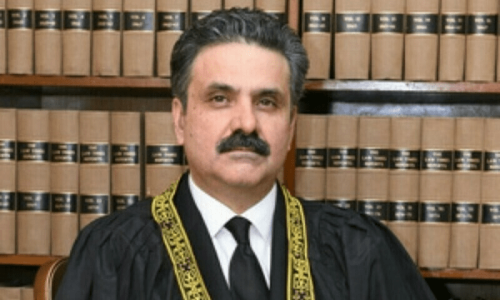LONDON: An official report into Britain’s involvement in rendition and torture since the 9/11 terrorist attacks on the US has yet to be published more than nine months after it was completed and delivered to the British prime minister, David Cameron.
The report was written by Sir Peter Gibson, a retired judge, after he spent a year examining secret government documents in preparation for an inquiry the prime minister ordered shortly after entering Downing Street. The inquiry was eventually shelved shortly after police announced they were embarking on a criminal investigation, but Gibson, who served as the intelligence services commissioner until January 2011, agreed to write an interim report on his findings.
Although the government promised that “as much of this report as possible will be made public”, the Cabinet Office says no date has yet been fixed for publication. Asked why publication had been delayed, a spokesperson replied: “I can’t comment.”
The United Nations special rapporteur on torture, Ben Emmerson, has called on the government to publish the report as part of what he describes as “a reckoning with the past”.
Emmerson also called on the US government to publish a report on rendition approved last year by the Senate intelligence committee, and which, according to the committee’s Democrat majority, shows the so-called rendition and enhanced interrogation programme to have been a “terrible mistake”.
Failure to publish the two reports, Emmerson said last month, suggested “a policy of de facto immunity for public officials who engaged in acts of torture, rendition and secret detention, and their superiors and political masters who authorised these acts”.
The British government says the Gibson inquiry was shelved in January last year because Scotland Yard had embarked upon investigations into the UK-Libyan rendition operations that came to light following the discovery of a cache of secret intelligence documents in an abandoned office building in Libya’s capital, Tripoli, following the collapse of Muammar Qadhafi’s regime.
However, David Anderson QC, the independent reviewer of terrorism legislation, has said that was only one reason for the decision.
“Part of it was a dispute over the question over who should have the word on disclosure,” he said. “Should that be the security services or should
that be the chair of the inquiry? And it was partly that the police decided that it wanted to investigate with a view to some criminal prosecutions, and that in the end was the reason given for the inquiry being put off.”
Under the terms on which the inquiry was established, the cabinet secretary, Sir Jeremy Heywood, and not Gibson, will have the final say on which sections of the report will be censored before publication. The Cabinet Office has declined to say whether material may be censored in order to protect the reputations of the UK’s intelligence agencies.
By arrangement with the Guardian














































Dear visitor, the comments section is undergoing an overhaul and will return soon.